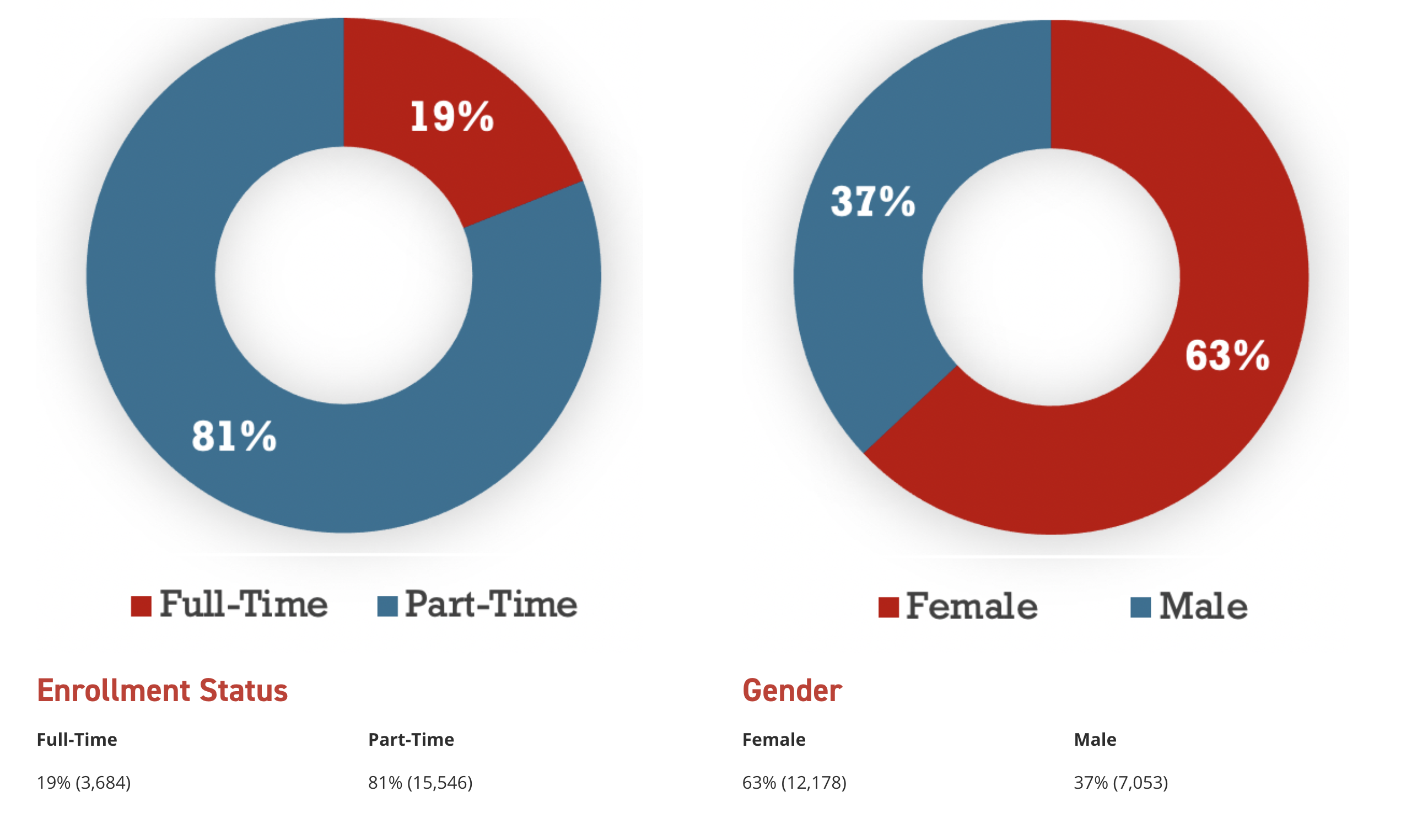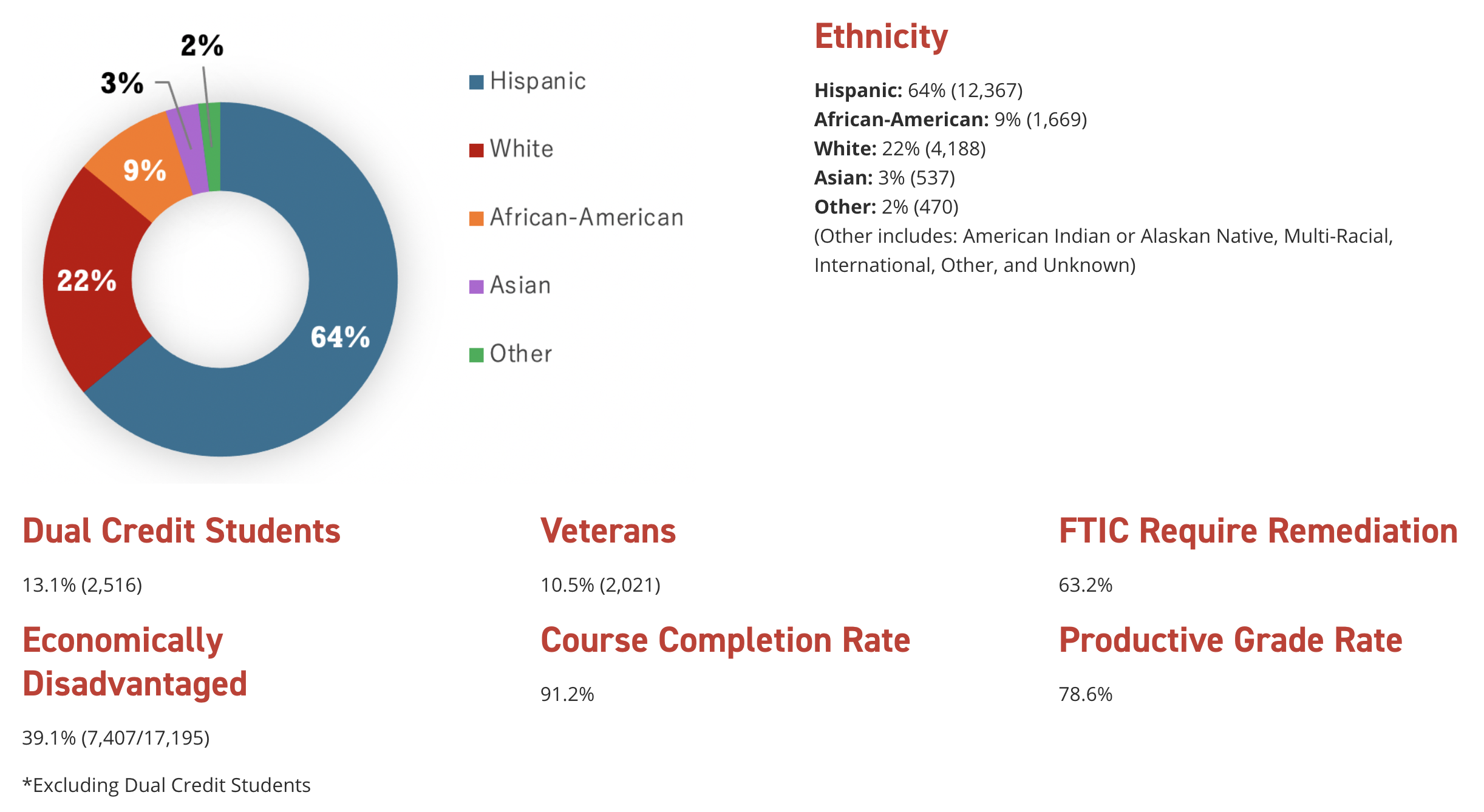Serving Our Students
These are the students we serve at SAC
SAN ANTONIO COLLEGE FALL 2020 STUDENT PROFILE


Find more information at https://www.alamo.edu/sac/about-sac/leadership/president/student-profile/
Who Are the Students Community Colleges Serve?
The typical college student is no longer the image many of us hold in our heads—an 18- to 22-year-old who leaves his or her parents’ home for the first time, ready to begin the journey at an ivy-walled four-year college or university. Rather, many of today’s college students are beyond the age of 24, employed at least part time, and raising a family. Approximately half are low-income and financially independent from their parents, and a third are students of color (Deil-Amen 2015; Ma and Baum 2016).
"Community colleges already serve the underserved half of high school students; these students are now at risk of becoming the new forgotten half of community college students: credits but no degree."
WHO ARE THE STUDENT COMMUNITY COLLEGES SERVE?
Click on the red button to access the full article by the American Council in Education© RACE AND ETHNICITY IN HIGHER EDUCATION.
Click HERE to download the essay as a PDF document.
-
disABILITY Support Services
...where the focus is on your ABILITY!
The mission disABILITY Support Services at SAC is to provide reasonable accommodations and facilitate access for on-campus and distance education students to have an equal opportunity to participate in and enjoy the benefits of higher education.
Six Recommendations for Caring for Students
This playbook is organized into six recommendations that are accompanied by concrete strategies and related resources to support the implementation of caring for students into teaching practices.
COMMUNITY COLLEGES, EQUITY & HIGHER ED IN THE TIME OF COVID
Noah Brown of ACCT on how community colleges are reacting to COVID education , enrollment challenges and the financial hit of the pandemic
CLICK HERE to LISTEN to the podcast
FOSTERING A SENSE OF BELONGING by ACUE
A classroom, whether physical or virtual, is a reflection of the world in which we live. Research has shown that students from underrepresented groups often face additional challenges. By implementing teaching practices for fostering a sense of belonging, faculty create learning environments where all students feel they belong and have the opportunity to achieve at high levels.
To support instructors in creating these learning environments, we’re offering a set of free resources, including 10 thoughtful teaching practices that can be immediately put to use to benefit both faculty and their students. These practices are tailored for online teaching but are also relevant to the physical classroom.
These 10 practices include:
- Ensure your course reflects a varied society and world.
- Ensure course media are accessible.
- Ensure your syllabus sets the tone for caring and belongingness.
- Use compassionate language.
- Share your gender pronouns.
- Learn and use students’ preferred names.
- Engage students in a small-group introductions activity.
- Use an interest survey to connect with students.
- Offer flexible office hours.
- Set expectations for valuing different viewpoints.
TOOLKIT FOR FOSTERING A SENSE OF BELONGING
Click on the red button to access ACUE's TOOLKIT page.
